Description
Perennial, the leaves can be candied or brewed into an aromatic mint like tea. Also know as “kitty krack”.
$1.70 – $88.15
Perennial, the leaves can be candied or brewed into an aromatic mint like tea.
Seeds/ounce – 35,000
Pkt Weight – 1/24
Perennial, the leaves can be candied or brewed into an aromatic mint like tea. Also know as “kitty krack”.
| Options | 1 lb, 1 oz, 1/4 lb, 1/4 oz, packet |
|---|---|
| Source | Natural, Organic |
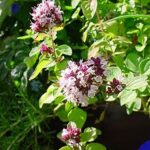
Greek oregano tends to be the most savory and earthy, while Italian is milder. Greek Oregano’s flavor is hot and peppery. Its spicy yet refreshing flavor contributes to Italian, Greek, and Spanish cuisine, as well as Mexican.
Oregano is a perennial growing to 20 inches, with pink flowers and spade-shaped, olive-green leaves.
Seeds/ounce – 125,100
Pkt Weight – 1/128
Greek oregano tends to be the most savory and earthy, while Italian is milder. Greek Oregano’s flavor is hot and peppery. Its spicy yet refreshing flavor contributes to Italian, Greek, and Spanish cuisine, as well as Mexican.
Oregano is a perennial growing to 20 inches, with pink flowers and spade-shaped, olive-green leaves.
Seeds/ounce – 125,100
Pkt Weight – 1/128
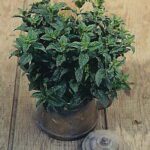
Purplish stems are 2-4 ft tall, has 2 inch broad smooth leaves that are distinctly stalked.
Seeds/ounce – 450,000
Pkt Weight – 1/168
Purplish stems are 2-4 ft tall, has 2 inch broad smooth leaves that are distinctly stalked.
Seeds/ounce – 450,000
Pkt Weight – 1/168

Seeds/ounce – 353,500
I do not have an image for this product. If you buy and raise this product this year and send me an image of it, I will give you a free pack for next year. Send to” errolahlers@morgancountyseeds.com. Please include your name, address, and product name.
Pkt Weight – 1/189
Seeds/ounce – 353,500
I do not have an image for this product. If you buy and raise this product this year and send me an image of it, I will give you a free pack for next year. Send to” errolahlers@morgancountyseeds.com. Please include your name, address, and product name.
Pkt Weight – 1/189
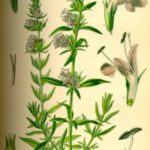
Hyssop is a brightly coloured shrub or subshrub that ranges from 30 to 60 cm (12 to 24 in) in height. The stem is woody at the base, from which grow a number of straight branches. Its leaves are lanceolate, dark green in colour, and from 2 to 2.5 cm (0.79 to 0.98 in) long.[3]
During the summer, the plant produces bunches of pink, blue, or, more rarely, white fragrant flowers. These give rise to small oblong achenes.
Seeds/ounce – 27,150
Pkt Weight – 1/128
The species as a whole is resistant to drought, and tolerant of chalky, sandy soils. It thrives in full sun and warm climates.
27150 seeds/ounce approximately 200 seeds/Pkt
Hyssop is a brightly coloured shrub or subshrub that ranges from 30 to 60 cm (12 to 24 in) in height. The stem is woody at the base, from which grow a number of straight branches. Its leaves are lanceolate, dark green in colour, and from 2 to 2.5 cm (0.79 to 0.98 in) long.[3]
During the summer, the plant produces bunches of pink, blue, or, more rarely, white fragrant flowers. These give rise to small oblong achenes.
Seeds/ounce – 27,150
Pkt Weight – 1/128
The species as a whole is resistant to drought, and tolerant of chalky, sandy soils. It thrives in full sun and warm climates.
27150 seeds/ounce approximately 200 seeds/Pkt
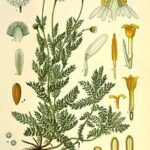
The plant is used to flavor foods, in herbal teas, perfumes, and cosmetics. It is used to make a rinse for blonde hair, and is popular in aromatherapy; its practitioners believe it to be a calming agent to reduce stress and aid in sleep.
Its properties make it appropriate for the treatment of cracked nipples that develop during breastfeeding. It can be applied directly to the skin for pain and swelling. It is not recommended for use during pregnancy as it can cause uterine contractions and miscarriage.
Approximately 189,000 per ounce Pkt about 1000
The plant is used to flavor foods, in herbal teas, perfumes, and cosmetics. It is used to make a rinse for blonde hair, and is popular in aromatherapy; its practitioners believe it to be a calming agent to reduce stress and aid in sleep.
Its properties make it appropriate for the treatment of cracked nipples that develop during breastfeeding. It can be applied directly to the skin for pain and swelling. It is not recommended for use during pregnancy as it can cause uterine contractions and miscarriage.
Approximately 189,000 per ounce Pkt about 1000

Spearmint, also known as garden mint, common mint, lamb mint and mackerel mint, is a species of mint, Mentha spicata, native to Europe and southern temperate Asia, extending from Ireland in the west to southern China in the east. It is naturalized in many other temperate parts of the world, including northern and southern Africa, North America and South America. It is used as a flavouring in food and herbal teas. The aromatic oil, called oil of spearmint, is also used as a flavouring and sometimes as a scent.
Wikipedia · Text under CC-BY-SA license
Spearmint, also known as garden mint, common mint, lamb mint and mackerel mint, is a species of mint, Mentha spicata, native to Europe and southern temperate Asia, extending from Ireland in the west to southern China in the east. It is naturalized in many other temperate parts of the world, including northern and southern Africa, North America and South America. It is used as a flavouring in food and herbal teas. The aromatic oil, called oil of spearmint, is also used as a flavouring and sometimes as a scent.
Wikipedia · Text under CC-BY-SA license
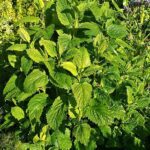
The leaves are used as a herb, in teas and also as a flavouring. The plant is used to attract bees for honey production. It is grown as an ornamental plant and for its oil (to use in perfumery). Lemon balm has been cultivated at least since the 16th century.
Lemon balm seeds require light and a minimum temperature of 20 °C (68 °F) to germinate. The plant grows in clumps and spreads vegetatively (a new plant can grow from a fragment of the parent plant), as well as by seed. In mild temperate zones, the plant stems die off at the start of the winter, but shoot up again in spring. Lemon balm grows vigorously.
The leaves are used as a herb, in teas and also as a flavouring. The plant is used to attract bees for honey production. It is grown as an ornamental plant and for its oil (to use in perfumery). Lemon balm has been cultivated at least since the 16th century.
Lemon balm seeds require light and a minimum temperature of 20 °C (68 °F) to germinate. The plant grows in clumps and spreads vegetatively (a new plant can grow from a fragment of the parent plant), as well as by seed. In mild temperate zones, the plant stems die off at the start of the winter, but shoot up again in spring. Lemon balm grows vigorously.

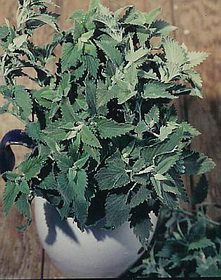

Reviews
There are no reviews yet.